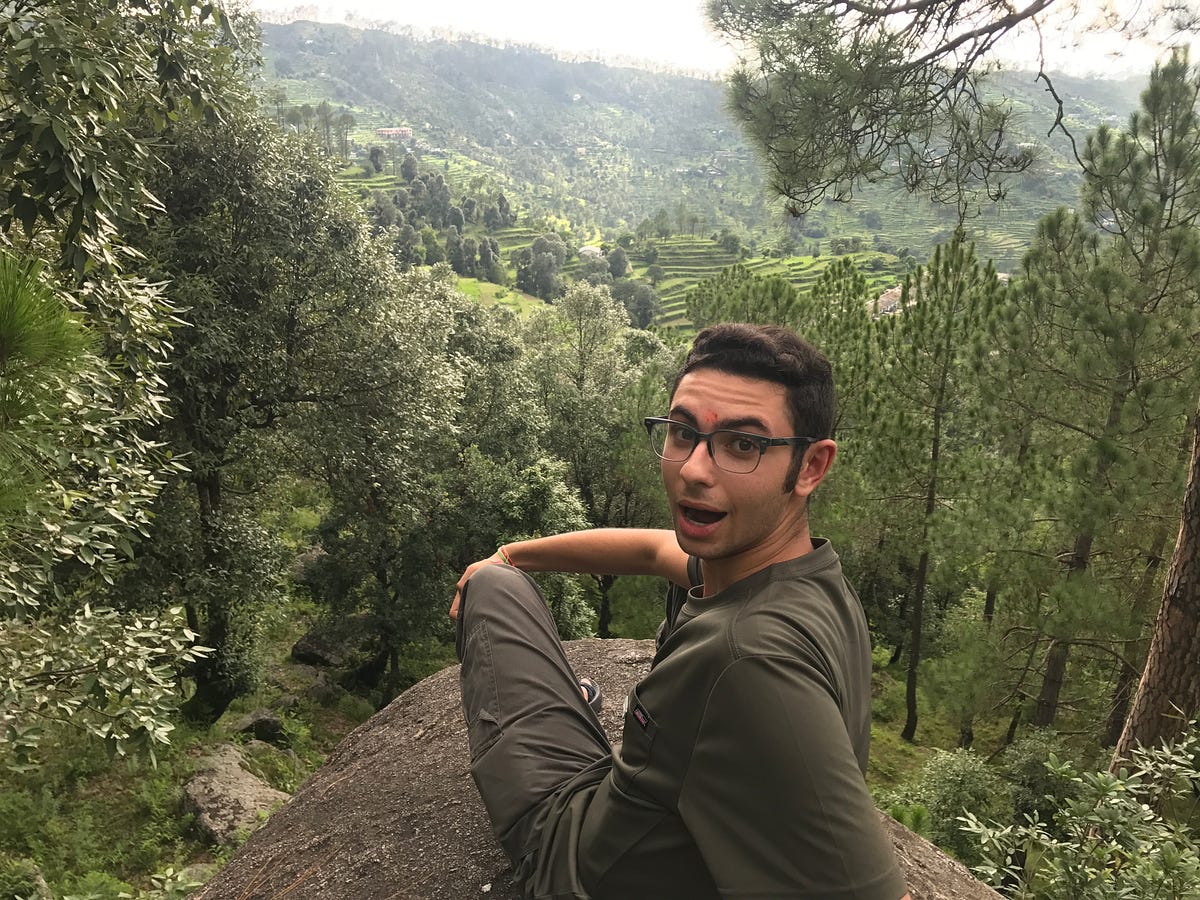Max Rubenstein believes young people can make a difference.
He should know. The 17-year-old from Atlanta is the founder of Game Givers, an international nonprofit that donates new and used video games to children’s hospitals. Launched in 2015, Game Givers has raised more than $110,000 and, in November, won a grant from Lady Gaga’s Born this Way Foundation. Rubenstein has also won the Georgia Youth Leadership Award, spoken at the United Nations International School’s UN Day in New York City, and, in February, he was named Georgia’s top youth volunteer by the Prudential Spirit of Community Awards.
Over the years, though, Rubenstein has faced a number of challenges due to his young age. From his initial lack of professional experience to getting adults to take him seriously, he has overcome them all. Now, in the wake of a transformative summer in India with The Experiment Leadership Institute, Rubenstein wants to help other teenagers become leaders, too. “I’m a firm believer in following your passion,” he says. “It’s been really incredible to work on this. It’s my passion.”
Learning how to solve problems with Game Givers
Rubenstein was inspired to start Game Givers in 2015, when his grandmother Sandy Goldberg started treatment for ovarian cancer. She was troubled to see sick children spending the same long hours in the hospital. Rubenstein realized that — unlike his grandmother, who often brought along her neon green Gameboy — many of those kids didn’t have anything to distract them.
So he did something about it. Rubenstein came up with the idea to not only collect and donate used games, but also host tournaments to raise money to buy new games for hospitals that do not accept used items. His grandmother helped him with start-up funds: When she passed away later that year, she arranged for her funeral donations to go to Game Givers. “She was this incredible, kind-hearted person,” Rubenstein says. “Everything that I do with the charity is for her.”

Game Givers has since helped thousands of kids in Georgia, Massachusetts, Michigan, and even Madrid, Spain. Last year, Game Givers used its award from the Born This Way Foundation to host a major tournament at Atlanta’s Ronald McDonald house, which Game Givers had already furnished with a game room. “With the charity, we’ve been able to show that we can do more and do things that are bigger than ourselves,” he says.
Challenges to youth advocacy — and how to overcome them
Young people often face obstacles in becoming leaders, though, which Rubenstein discovered firsthand. For one, adults don’t always take them seriously. While organizing Game Givers’ first game drive, a local hospital told Rubenstein that it didn’t work with minors. So he called an Uber — he wasn’t old enough to drive — to make his pitch in person. The hospital is now one of Game Givers’ biggest partners.
Teens don’t always see themselves as leaders either, Rubenstein says. He points out that getting involved doesn’t have to be intimidating or out-of-reach. “Not everybody needs to be running an international charity,” he says. “If you feel like you’re succeeding, that’s what’s important.”
To get started, Rubenstein advises other teens to connect with youth advocacy groups. “I think [these organizations are] so important because I wouldn’t have the skills or confidence to do something like that, especially when everyone is telling you that you can’t,” he says. “I just say, ‘Well, I can.’ And then I do it.”
In 2015, when he was working to get Game Givers off the ground, Rubenstein started attending youth leadership events at GivingPoint, which works with kids to help them launch community projects and nonprofits. They helped him nail down his pitch to donors and sharpen his leadership skills. Then, last year, Rubenstein linked up with the nonprofit Peace First, which had partnered with the Born This Way Foundation, to further develop his skills using their online resources.

Max in India with The Experiment Leadership Institute.
Finally, a summer in India with The Experiment Leadership Institute opened Rubenstein’s eyes to new possibilities. During his four-week stay, Rubenstein met likeminded teens, learned about critical global issues like public health, and lived in another culture during a homestay in the foothills of the Himalayas. It inspired him to do more in his community and beyond as he enters Northeastern University this fall.
Jumpstarting a ‘revolution’ of kids taking action
In his next project, Rubenstein hopes to become a voice for teens. He’s launching a podcast that will highlight the work of young changemakers across the country, whether they’ve hosted Zumba charity fundraisers or released critically acclaimed hip-hop tracks. “There are really incredible teenagers that people need to hear about,” he says. “Teens and youth need to know that it is possible to do this stuff.”
Funded with help from The Experiment — all Experiment Leadership Institute alumni complete follow-on projects for which they can obtain small grants — the podcast will explore how these teens turned their passions into projects. When the podcast launches later this year, Rubenstein hopes it will inspire other young people. As he says, “There needs to be this revolution of kids impacting their communities and not taking no for an answer.”
— Amy McKeever, writer/editor at World Learning


